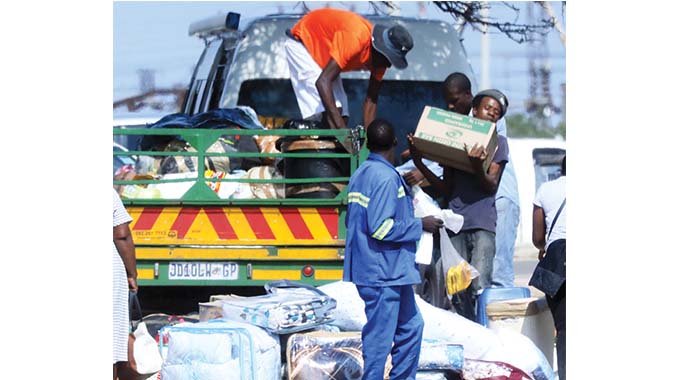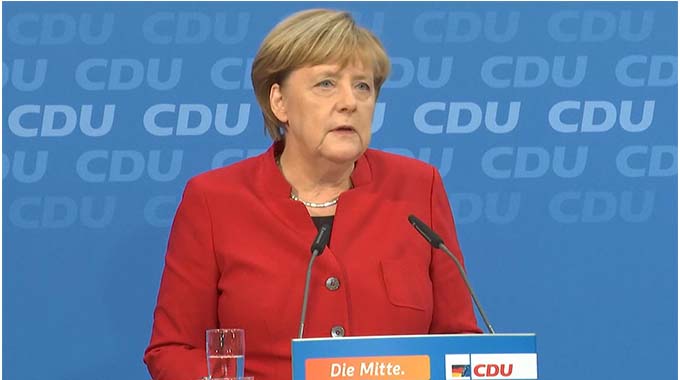The most expensive holiday for injiva

Raymond Jaravaza, Showbiz Correspondent
TWO thousand rand or an equivalent of about US$130 is a small fortune for a woman working as a maid in the leafy suburbs of Johannesburg.
The amount is about 70 percent of a monthly salary that Janet Mthimkhulu, a Lupane born 40-year-old woman, working in Johannesburg takes home at the end of every month.
By her admission, the R2 000 goes a long way in purchasing festive season groceries and clothes for her two kids and elderly mother back in Lupane.
But this time around, that money will be used for an entirely different purpose if Mthimkhulu is entertaining any thoughts of travelling back home to be with her loved ones for the Christmas holidays.
The coronavirus pandemic has changed life as we knew it prior to the worldwide outbreak of the novel virus early this year.
And most certainly, Covid-19 has changed the face of travel, be it by air, road or sea.
In a week’s time Mthimkhulu should be packing her bags, bus ticket and passport ready for the 870km journey from Johannesburg to Bulawayo. But this time around, it’s not as simple as that. She must have a negative Covid-19 certificate to enable her to travel back home.
The test costs R850 in a private laboratory and must not be older than 48 hours upon arrival at the border.
“This will be the most expensive journey back home because now I must spend R850 for the Covid-19 test here in Johannesburg, a day before I board a bus to Bulawayo.
“R850 is a lot of money for a domestic worker like myself who works as a maid for a white family here in Johannesburg. That money alone is enough for a bus ticket to Bulawayo or to buy my two kids new clothes for Christmas.
“This Covid-19 disease is really wreaking havoc in our lives, first it was job losses for a majority of Zimbabweans living here and now we have to bear the cost of tests to travel back home,” Mthimkhulu tells Saturday Leisure by telephone from South Africa.
The extra costs that Mthimkhulu must budget for do not end there. On her return to SA, she must present a negative test not older than 72 hours. That test costs US$60 (around R920).
“The two tests will cost about R1 800 and if I add the local transport costs to the laboratories, it easily adds up to R2 000. That is a lot of money, which I should be using for other things such as school uniforms for my kids.
“I haven’t even factored in bus fare which costs R1 200 for a return trip to Johannesburg, more money to travel to my rural home from Bulawayo, groceries for the family and school fees for the children next year when schools open,” lamented Mthimkhulu.
Mthimkhulu is not alone in this new predicament presented to travellers as a result of Covid-19 pandemic.
Speaking to the media two weeks ago, other Zimbabweans living in Limpopo, the South Africa province that lies after the Beitbridge border post, told the same story.
“If you want to travel to another country, you need a negative Covid-19 certificate. It is your own private thing so you can visit private laboratories for the Covid-19 test and get a certificate,” said Thilivhali Muavha, spokesperson for the Limpopo health department during a joint Zim/SA taskforce tour of the border.
“Public hospitals do not do that.”
But for many Zimbabweans, the costs are just too high.
Marvelous Moyo, who runs a food stall near the South Africa border gate, said since March this year, she has not been able to afford to visit her family in Masvingo because the lockdown affected her business.
“Though borders were opened for us to travel back home, I could not. My only means of sustaining a living is through selling food at this place. The little money I am getting since we were allowed to go back to business is not enough to meet the travel costs including Covid-19 tests,” she told the taskforce.
Home Affairs Minister Kazembe Kazembe said the Covid-19 costs were a necessary evil that the travelling public must learn to live with for the unforeseeable future.
“We need to save lives. This pandemic is real. We urge our citizens to plan their trips. If you know you want to travel in a few weeks, do what is expected of you so you do not have challenges at the border,” he said.
To circumvent the stringent border control demands for Covid-19 certificates, many will likely turn to using the illegal entry points dotted along the border line.
Omalayitsha – cross border transporters – are already smiling in anticipation of injiva that will require their services to outmanoeuvre border officials by using illegal entry points.
During an unrelated trip to Esigodini, the last small town before entering Bulawayo, Chronicle Showbiz had a chat with a malayitsha coming home from South Africa.
“There is a solution to every problem and this is where we come in. Travellers will abandon buses and come to us because we can get them through the border without the Covid-19 certificates,” he bragged.
The cross-border transporter was carrying passengers in his Toyota Quantum, towing a trailer laden with a variety of goods from beds to groceries.
If left unabated, the influx of travellers without negative Covid-19 certificates could be catastrophic to the fight against coronavirus in the country.
Bulawayo in particular has seen a surge in new cases and most worrying in schools around the Matabeleland region. — @RaymondJaravaza











Comments